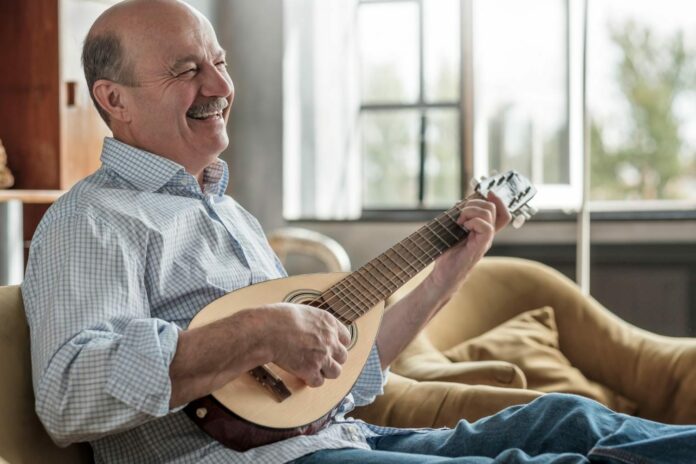Playing music or singing in a choir throughout your life can keep your brain healthy as you age, says a study from the University of Exeter. The researchers looked at data from over a thousand adults aged 40 and above, part of a 10-year study called PROTECT.
Researchers found that people who played a musical instrument or sang in a choir had better brain health. The study involved over 25,000 participants, and the scientists looked at how much music people were exposed to in their lifetime, along with their cognitive test results.
Playing a musical instrument, especially the piano, improves memory and problem-solving skills. The benefits are even more significant when you continue playing as you age. Singing is also associated with better brain health, possibly because of the social aspects of being part of a choir or group.
Anne Corbett, Professor of Dementia Research at the University of Exeter, said: “A number of studies have looked at the effect of music on brain health. Our PROTECT study has given us a unique opportunity to explore the relationship between cognitive performance and music in a large cohort of older adults. Being musical could harness the brain’s agility and resilience, known as cognitive reserve.”
“Although more research is needed to investigate this relationship, our findings indicate that promoting musical education would be a valuable part of public health initiatives to promote a protective lifestyle for brain health, as would encouraging older adults to return to music later. There is considerable evidence for the benefit of music group activities for individuals with dementia. This approach could be extended as part of a healthy aging package for older adults to enable them to reduce their risk proactively and to promote brain health.” She added.
Stuart Douglas, a 78-year-old accordion player from Cornwall, has played the accordion all his life. He now plays with the Cober Valley Accordion Band and the Cornish Division of the Royal Scottish Country Dance Society. Stuart believes that playing the accordion has kept his brain healthy throughout his career in the police force and retirement.
He regularly performs with the band, especially at memory cafes, where they’ve witnessed the positive impact of music on people with memory loss. The study that inspired this idea was initiated by Gaia Vetere, a University of Exeter Medicine student, and pianist, who wanted to explore the connection between music and cognition. She found the research experience challenging but rewarding.
The study provides valuable insights into the positive relationship between playing musical instruments like the accordion and piano and better brain health in older adults. The findings support that musical engagement can contribute to cognitive well-being, encouraging continued participation in musical activities for older individuals.
Journal reference:
- Gaia Vetere, Gareth Williams, et al., The relationship between playing musical instruments and cognitive trajectories: Analysis from a UK aging cohort. International Journal of Geriatric Psychiatric. DOI:10.1002/gps.6061.
